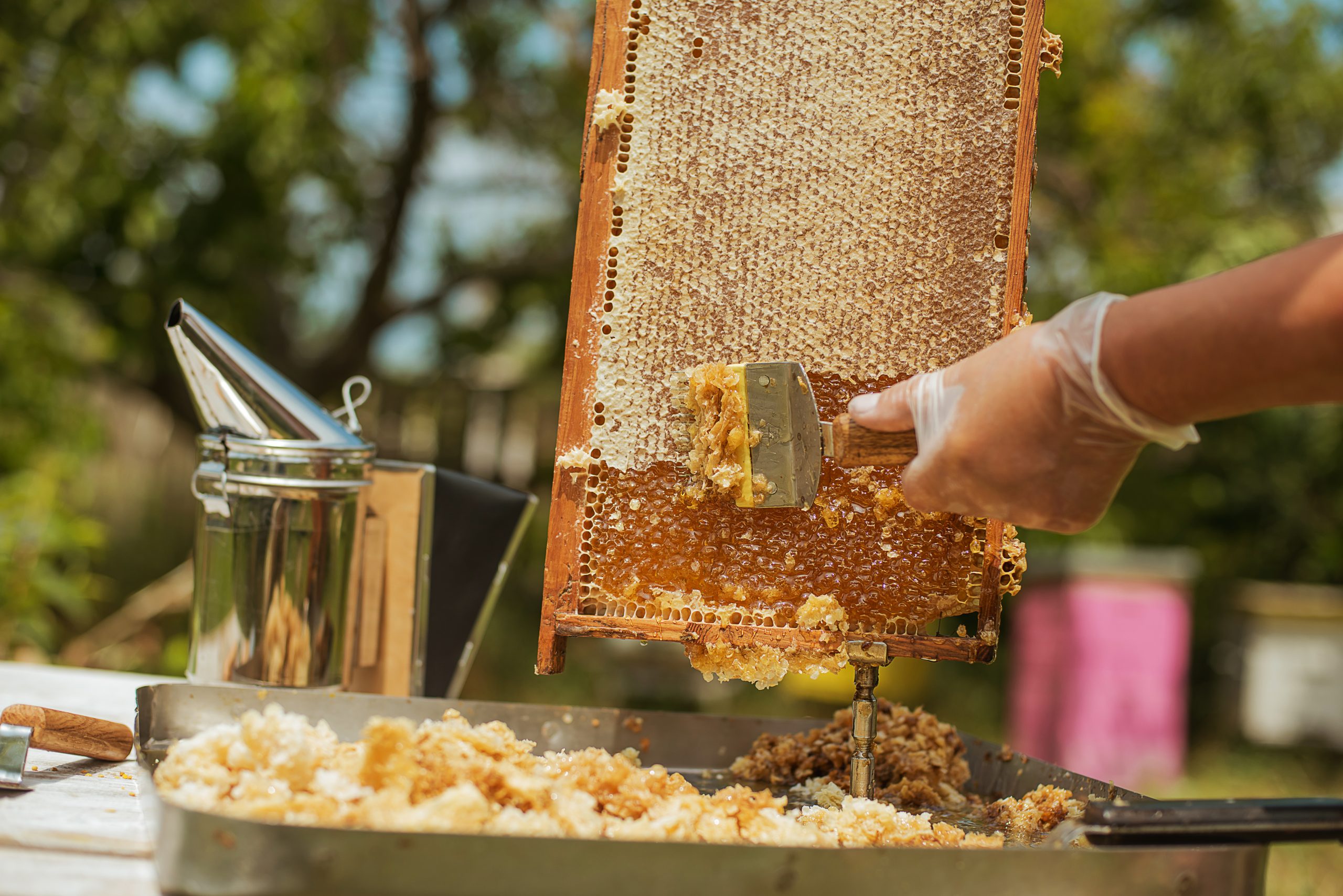Local Bee Farmers Still Hard at Work
August 31, 2015
Beekeeping in the Ozarks
Many people have fears of bees and, to some, they are very frightening creatures. But many people have found that the more they learn about these winged pollinators the more they become fascinating instead of scary. Bees work in colonies that are often very complex in their structure – when AreaWideNews.com spoke with local beekeepers, they found how hardworking and dedicated these worker insects are to pollination local plants and producing delicious honey.
The typical bee colony will consist of three major types of bees – drones, workers, and the queen. Worker bees have a lot of responsibility within the hive, including keeping the hive clean, taking care of eggs and raising young bees and, for older bees, having to go out and forage for nectar and pollen. While this may seem like a long, full life for bees it is important to keep in mind that their average life span is only 21 days – except for the queen, who can live anywhere between four and seven years.
Mark Hoover, the owner of a honey farm outside of Mammoth Spring, Arkansas, said "The worker bees are female and the drones are males and service the queen. Worker bees take care of the queen and direct her to where she needs to go. They dictate to her sometimes what she is supposed to do and her main function is to lay the eggs." Hoover has been in the beekeeping business for almost five years and currently has between 150 and 160 beehives on his property.
"It's neat to see how a colony survives and all of the different functions in the colony, every bee has a role. The babies take care of the brood and the eggs. As they get older they graduate to cleaning the hive and as they continue to get older they go out and become foragers," Hoover explained when asked what the most interesting thing about beekeeping was to him. Another local beekeeper, Kim Douglas, has been in the practice for about 10 years – 5 of those years working in the state of Missouri.
When asked what most interested her about beekeeping, Douglas replied, “How much work the bees put into getting just a little bit of honey … One jar of honey is a lot of work for the bees. The elders of the beehive are the ones bringing in the honey and it is a little opposite of how we live. For us the younger you are the harder you work and it is opposite in the bee world."


.jpg)




